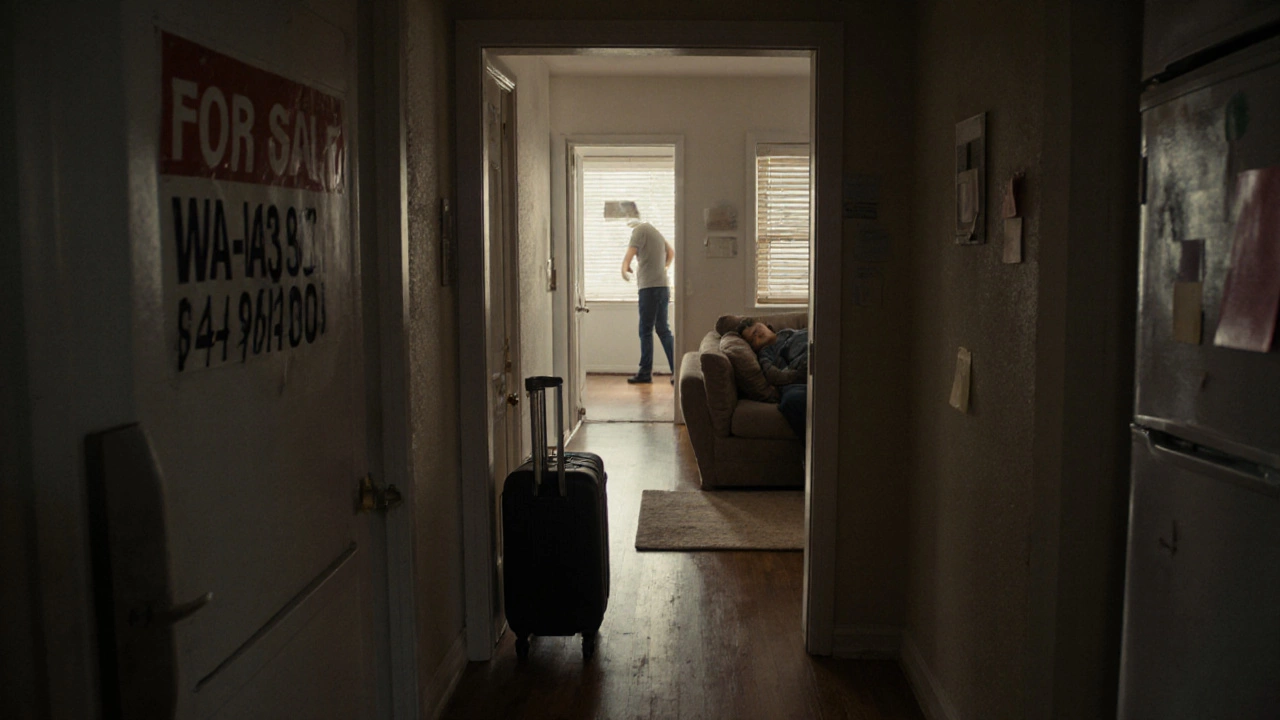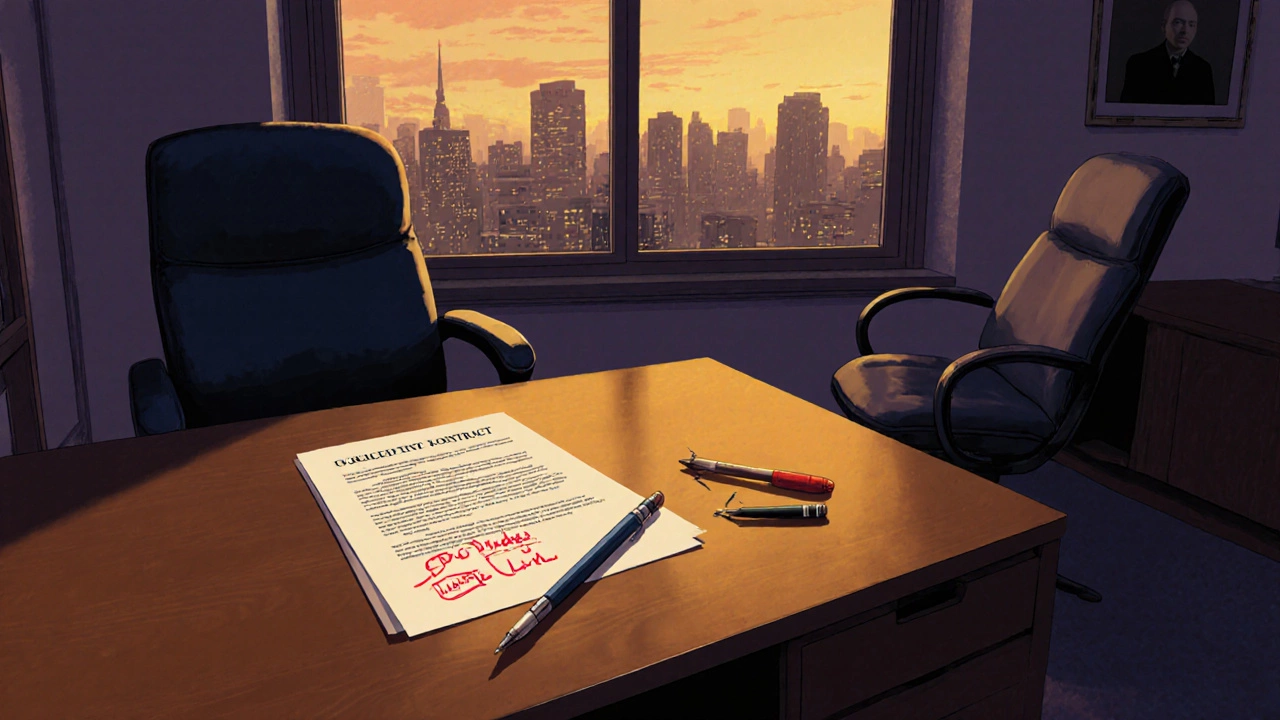Shared Ownership Risk Calculator
Calculate Your Shared Ownership Risk Score
Enter your situation to see how risky shared ownership could be for you. Based on real data from New Zealand cases.
Home sharing sounds ideal on paper: split the cost, build equity faster, and live in a place you couldn’t afford alone. But for every success story, there are five quiet nightmares no one talks about until it’s too late. If you’re thinking about sharing ownership of a home-whether with a friend, partner, or stranger-you need to know what goes wrong before you sign anything.
You’re stuck with each other, even when things fall apart
When you buy a home together, you’re not just sharing a mortgage. You’re sharing a legal contract, a credit score, and your future. If your co-owner loses their job, gets divorced, or just decides they hate the neighborhood, you can’t just walk away. Selling a shared property is messy. One person wants out, the other wants to stay. Banks won’t refinance unless both names come off the loan. And if your co-owner stops paying? You’re on the hook for the full amount. In Auckland, a 2024 study showed that 42% of shared ownership arrangements ended in legal disputes within three years-not because of money, but because of broken trust.
Decision-making becomes a daily battle
Who picks the paint color? Who pays for the new roof? What if one person wants to rent out a room and the other thinks that’s a bad idea? In shared ownership, every decision needs unanimous approval. That sounds fair-until you’re arguing over whether to replace the dishwasher or install a smart lock. One person might be frugal; the other loves upgrades. One wants pets; the other is allergic. There’s no middle ground when you’re both legal owners. No one wins. The house becomes a battleground.
Your credit and finances are tied to someone else’s chaos
Your credit score isn’t yours anymore. If your co-owner misses a payment, defaults on a car loan, or maxes out their credit card, it can drag your score down-even if you’ve paid every bill on time. Lenders look at the whole picture. A single late payment by your co-owner could cost you thousands in higher interest rates when you try to buy your next home. And if you ever need to get a personal loan, a mortgage, or even rent an apartment, lenders will see the shared property as a liability. It’s not just your debt-it’s your future.
You lose control over who lives there
What if your co-owner invites their cousin to move in for "a few months"? Or starts subletting the spare room on Airbnb without telling you? In most shared ownership agreements, you don’t have full say over who enters the home. Even if you have a written agreement, enforcing it is expensive and stressful. One Auckland couple signed a contract saying no guests over 30 days-but when the woman’s ex moved in for six months, the man had to go to court just to get him out. Legal fees: $8,200. Result: the relationship was destroyed, and the house sat empty for three months.

Resale is harder-and you get less money
Selling a shared home is slower than selling one you own outright. Buyers don’t like complications. They don’t want to deal with two sets of owners, two sets of demands, or the risk of one person blocking the sale. Real estate agents in Auckland say shared ownership properties take 30-50% longer to sell. And when they do sell? You often get 5-15% less than market value because buyers assume there’s drama behind the scenes. You might think you’re building equity fast-but when it’s time to cash out, the system works against you.
There’s no safety net if someone dies or gets sick
What happens if your co-owner passes away? Their share doesn’t vanish-it goes to their estate. That means their spouse, child, or even a distant relative could become your new co-owner. You didn’t choose them. You can’t evict them. And if they want to sell? You’re forced to comply. The same goes for long-term illness. If your co-owner can’t work for a year, who covers their share? Insurance doesn’t cover shared property. Family members might step in-but they’re not legally bound to pay. You’re left holding the bag.
It’s harder to upgrade or move later
Life changes. You might want to move closer to work. Or start a family. Or retire. But if you’re tied to a shared home, your options shrink. You can’t just sell and move. You need your co-owner’s permission. And if they don’t want to move? You’re stuck. Some people try to buy out their partner-but that’s expensive. Most don’t have the cash. And if you can’t afford to buy them out, you’re stuck living in a home that no longer fits your life.

Legal agreements are often incomplete-or ignored
Most people think a handshake and a shared bank account are enough. They’re not. A 2023 survey by the New Zealand Law Society found that 68% of shared ownership arrangements had no formal written agreement. Of the 32% that did, half were poorly drafted-missing key details like exit strategies, maintenance costs, or what happens if one person defaults. Even when agreements exist, people ignore them when emotions run high. "We’ll sort it out later" is the most dangerous phrase in home sharing. Later never comes. Until it’s too late.
Emotional toll is higher than you expect
Money isn’t the only cost. The stress of constant negotiation, the guilt of being the one who wants out, the resentment of paying for someone else’s choices-it wears you down. People report higher levels of anxiety, sleep loss, and relationship strain in shared ownership than in renting. One woman in Wellington told me she cried every time she walked into her home because she felt like a prisoner. She didn’t hate the house. She hated being trapped with someone who didn’t respect her boundaries.
There are better ways to get into homeownership
You don’t need to share ownership to buy a home. First-home buyer grants in New Zealand can cover up to $10,000. KiwiSaver can help with your deposit. Some councils offer low-interest loans for first-timers. Renting and saving might take longer-but it gives you freedom. You can move. You can change your mind. You won’t risk your credit, your peace, or your future on someone else’s choices.
Home sharing isn’t evil. It works for a few people-with perfect trust, perfect timing, and perfect legal backup. But for most? The cons aren’t just risks. They’re inevitable.
Is shared ownership illegal in New Zealand?
No, shared ownership is legal in New Zealand. You can buy a home jointly with one or more people under joint tenancy or tenancy in common. But legality doesn’t mean it’s safe. Without a clear, legally reviewed agreement, you’re exposing yourself to financial and emotional risks.
Can I force my co-owner to sell the house?
Only through the courts. If you can’t agree on selling, you can apply to the District Court for an order to sell the property. But this process takes months, costs thousands, and damages relationships. Courts will only force a sale if they believe it’s fair-and even then, you’ll likely get less than market value.
What’s the difference between joint tenancy and tenancy in common?
Joint tenancy means you both own the whole property equally. If one person dies, their share automatically goes to the other. Tenancy in common lets you own different percentages (like 60/40). If one person dies, their share goes to their estate-not the co-owner. Most shared ownership arrangements use tenancy in common for flexibility, but it also makes disputes harder to resolve.
Do I need a lawyer for shared ownership?
Yes. A lawyer isn’t optional. You need a written agreement that covers: how much each person pays, how decisions are made, what happens if someone can’t pay, how to handle repairs, how to sell, and what happens if someone dies. Without this, you’re gambling with your home. The cost of a lawyer ($800-$1,500) is tiny compared to the cost of a court battle.
Can I rent out my share of a shared home?
Only if your co-owner agrees-and most agreements forbid it. Even if you own 50%, you don’t have the right to rent your half without permission. The entire property is one unit. Renting out a room without consent can lead to legal action, eviction, or a forced sale.
What if my co-owner refuses to pay their share of the mortgage?
You’re still responsible for the full payment. The bank doesn’t care if your co-owner skipped out. If you don’t pay, you risk foreclosure. You can sue your co-owner for reimbursement, but collecting is hard. Many people end up paying twice-once to the bank, once to cover their co-owner’s debt.
Are there tax implications with shared ownership?
Yes. If you sell and make a profit, you may owe capital gains tax if the home wasn’t your main residence for the full time you owned it. If you rent out part of the home, you must declare rental income. Both parties need to report their share. The Inland Revenue Department treats shared ownership like any other investment property-so keep good records.
Is shared ownership better than renting?
Only if you’re certain about your co-owner and have a solid legal agreement. Otherwise, renting gives you freedom, lower risk, and no legal entanglements. You can move when you want. You don’t have to worry about someone else’s credit or lifestyle. Renting isn’t failure-it’s strategy.
What to do instead
If you want to own a home but can’t afford it alone, look at government programs. KiwiSaver first-home withdrawals, the First Home Loan, and regional grants exist for a reason. Talk to a housing advisor. Save longer. Buy smaller. Move to a less expensive area. There’s no shame in waiting. The cost of rushing into shared ownership isn’t just financial-it’s emotional, legal, and long-lasting. Protect your future. Don’t let a shortcut become a trap.


Corbin Fairweather
I am an expert in real estate focusing on property sales and rentals. I enjoy writing about the latest trends in the real estate market and sharing insights on how to make successful property investments. My passion lies in helping clients find their dream homes and navigating the complexities of real estate transactions. In my free time, I enjoy hiking and capturing the beauty of landscapes through photography.
view all postsWrite a comment